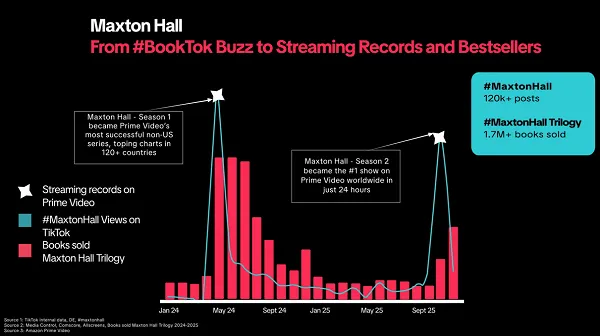Nvidia CPUs might be coming to laptops sooner than we thought
Leaks suggest Nvidia is collaborating with Lenovo on a powerful new chip that will be featured in its Yoga line of laptops.

 Mark Coppock / Digital Trends
Mark Coppock / Digital TrendsSemiconductor manufacturer Nvidia is gearing up to be one of the major chip suppliers for AI PCs in 2025, with an upcoming system on a chip (SoC) set to be featured in a Lenovo laptop that could be announced by the middle of the year.
The company made its first run at the CPU market with Project Digits, a desktop PC that can run ChatGPT locally. But it may be breaking into some more consumer-focused markets soon, too.
While there are several chip suppliers, including AMD, Intel, and Qualcomm, readily partnering with hardware brands to develop AI PCs, recent leaks indicate that Nvidia is preparing a chip based on the Blackwell architecture that has the potential to outperform competitors — and it may be coming soon.
Report/Rumor about NVIDIA WoA SoC:
– Architecture: Blackwell, 180-200 TOPS
– Launch/Announcement: Computex 2025
– Collaborate with: MediaTek
– Lineup: N1x (High-end), N1 (Mid-range (?!)
– Production Estimates: Q4 2025: 3 million units
FY 2026: 13 million units https://t.co/zezO8XZRHU
— Hoang Anh Phu (@AnhPhuH) January 13, 2025
Walking Cat discovered amid data mining information, that Lenovo may be using an Nvidia chip with an updated naming scheme for its Yoga 2-in-1 16 2025 laptops. The leak showed a Nvidia N1x chip associated with the device and Lenovo job descriptions. Furthermore, Hoang Anh Phu backed up the claim by detailing that the chip was based on the Blackwell architecture, and could be announced in the time frame of Computex 2025. That equates to about late May.
According to Videocardz, the N naming scheme could come from Lenovo, and how the brand takes the first letter from each of its component partners and incorporates it into its own name sequence. An AMD run Yoga product becomes Yoga a, an Intel run Yoga is Yoga i, a Qualcomm run Yoga is Yoga q. Similarly, an Nvidia-run Yoga would be Yoga n.
Lenovo uses such a "platform code " system to indicate the CPU, like A?? for AMD, I?? for Intel, Q?? for Qualcomm, but Yoga 2in1 16 2025 has this funny platform code "N1X", what could it be? 🥸 https://t.co/AvYchIelVG pic.twitter.com/tU09V4p1lV
— WalkingCat (@_h0x0d_) January 13, 2025
Additionally, there may be tiers of chips, a high-end N1x and a midrange N1, according to Phu. They also noted that the Blackwell Architecture is set to support between 180 and 200 tera operations per second (TOPS) of neural processing unit (NPU) power, which is four times more powerful than the top chips currently on the market. Nvidia is also expected to collaborate with MediaTek and to use TSMC’s 3nm process to develop the SoC.
Despite the leaked information, Videocardz noted that Nvidia CEO Jensen Huang stated at a Q&A session during CES that there was no information about launch timelines.
Fionna Agomuoh is a Computing Writer at Digital Trends. She covers a range of topics in the computing space, including…
Check your expectations — Nvidia’s RTX 50-series benchmarks don’t tell the full story
Nvidia just revealed its range of RTX 50-series GPUs at CES 2025, and made some big performance claims. The company says that the flagship RTX 5090 is twice as fast as last gen's RTX 4090, and it's not alone. Across all of the benchmarks Nvidia shared, from the RTX 5090 down to the RTX 5070, Nvidia says the new GPUs are twice as fast as their last-gen counterparts.
We normally don't see that kind of generational uplift. Did Nvidia put some sort of magical GPU dust into its new graphics cards? If you look closely at the benchmarks, it becomes clear that, yes, Nvidia did exactly that. And that magical GPU dust is called DLSS 4.
Nvidia’s DLSS 4 can ‘see into the future’
Alongside the announcement of its new RTX 5090, 5080, 5070 Ti, and 5070 GPUs at CES 2025, Nvidia revealed its next version of the wildly popular Deep Learning Super Sampling, or DLSS. Nvidia has expanded DLSS several times over the past few years, and DLSS 3, which is available today, is already a mainstay in hundreds of PC games. DLSS 4 looks to push that even further, which is where its ability to "see into the future" comes into play.
Promising neural rendering capabilities, DLSS 4 is one of the key features of Nvidia's new range of RTX 50-series graphics cards. DLSS 4 introduces Multi Frame Generation, an AI-driven technology that is said to significantly enhance gaming performance by generating up to three additional frames for each rendered frame. Essentially, it can predict
Nvidia promises RTX 4090 performance in a $1,300 laptop
Nvidia CEO Jensen Huang just unveiled the RTX 50-series, including both desktop cards like the beastly RTX 5090 and laptop variants. As far as laptop gamers go, there's a lot to get hyped for here, as these GPUs might end up being some of the best graphics cards in terms of performance. Huang promises to deliver RTX 4090-level performance in a $1,300 laptop, and that's at half the thermal design power (TDP).
During the CES 2025 keynote, Huang spoke about the various GPUs that are on the way to laptops. Availability starts in March, and although no precise release dates have been given yet, we know what to expect in terms of pricing, and we also have a bit of a clue about the performance.

 MikeTyes
MikeTyes 




































